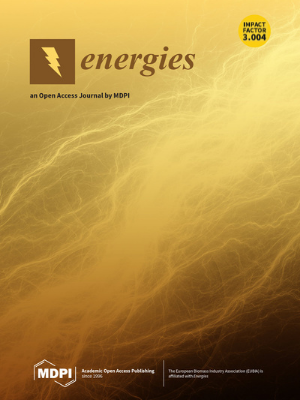地质环境工程中的能量收集机遇
IF 3.2
4区 工程技术
Q3 ENERGY & FUELS
引用次数: 0
摘要
地质环境工程涉及确定复杂问题的解决方案,如密封系统管理、污染物迁移控制、废水管理、污染场地修复以及地质材料和废物的价值化。近年来,人们开发了能量收集(EH)或能量清除方法和技术,以减少对传统能源(即化石燃料和核能)的依赖,同时应对人类活动对能源需求的增长,实现可持续发展目标。地质环境工程及周围土壤和水环境中的 EH 包括一系列捕获和积累能量的过程,这些能量来自与土壤动力学相关的被认为是浪费或不可利用的几种来源;地质材料的应力和应变、水力、振动、生物化学、光、热和风源都可以成为潜在的 EH 系统。因此,本研究综述了相关文献,并对地质环境工程中捕获、积累和使用 EH 的主要机会进行了批判性分析,其中包括基本的电力概念和机制,分析了这些工程在复杂条件下的生物、化学、机械、水力和热力耦合作用,最后总结了地质环境方面用于 EH 的主要研究和挑战。本文章由计算机程序翻译,如有差异,请以英文原文为准。
Energy Harvesting Opportunities in Geoenvironmental Engineering
Geoenvironmental engineering involves defining solutions for complex problems, such as containment systems management, contaminant transport control, wastewater management, remediation of contaminated sites and valorization of geomaterials and wastes. In the last years, energy harvesting (EH)—or energy scavenging—methods and technologies have been developed to reduce the dependence on traditional energy sources, namely fossil fuels, and nuclear power, also responding to the increase in energy demands for human activities and to fulfill sustainable development goals. EH in geoenvironmental works and the surrounding soil and water environment includes a set of processes for capturing and accumulating energy from several sources considered wasted or unusable associated with soil dynamics; the stress and strain of geomaterials, hydraulic, vibrations, biochemical, light, heating and wind sources can be potential EH systems. Therefore, this work presents a review of the literature and critical analysis on the main opportunities for EH capturing, accumulating and use in geoenvironmental works, among basic electric concepts and mechanisms, analyzing these works in complex conditions involving biological-, chemical-, mechanical-, hydraulic- and thermal-coupled actions, concluding with the main investigation and challenges within geoenvironmental aspects for EH purposes.
求助全文
通过发布文献求助,成功后即可免费获取论文全文。
去求助
来源期刊

Energies
ENERGY & FUELS-
CiteScore
6.20
自引率
21.90%
发文量
8045
审稿时长
1.9 months
期刊介绍:
Energies (ISSN 1996-1073) is an open access journal of related scientific research, technology development and policy and management studies. It publishes reviews, regular research papers, and communications. Our aim is to encourage scientists to publish their experimental and theoretical results in as much detail as possible. There is no restriction on the length of the papers. The full experimental details must be provided so that the results can be reproduced.
 求助内容:
求助内容: 应助结果提醒方式:
应助结果提醒方式:


